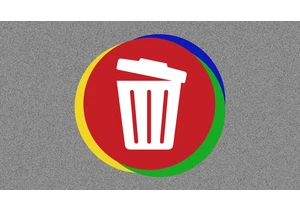There are certain social media rules we can all agree on: Ghosting a conversation is impolite, and replying “k” to a text is the equivalent of a backhand slap (violent, wrong, and rude). But what about the rest of the rules? When can we really remind someone of our old Venmo request? What happens when someone tries to flirt with you on LinkedIn?
Fortunately, terminally online writers Delia Cai and Steffi Cao are here to answer all your digital quandaries, big or small. Welcome to Fast Company’s advice column, Posting Playbook. This week, Delia Cai and Steffi Cao offer their advice on how to achieve a better relationship with social media in the new year.
My New Year’s resolution is to have a better relationship with the internet and get offline more. Any recommendations on how to start?
Delia: I personally haven’t been brave enough to do this yet, but I think a huge part of going offline is . . . taking all the offending apps off your phone. Bring back that childhood joy of rushing to your desktop when you want to luxuriate in onlineness, and keep that phone as pristine as possible of distractions. Bonus points for challenging yourself to spend an afternoon or evening with your phone turned off. I am pretty sure my brain operates at a cosmic capacity when that infernal glass brick is sitting uselessly in my pocket.
My other advice is to sign up for some kind of IRL activity that keeps you off your phone. Think of it as retraining your brain to go for hours without needing that dopamine injection every few minutes. I’ve tried pottery (though you kind of still get text neck if you’re throwing on the wheel), weight-training, yoga, movie-going, and language classes, all of which have required actual focus, which felt so foreign and excruciating at first. But once you start building a “muscle” for being off your phone for hours at a time, you’ll find you’re less dependent on the ol’ rat lever.
Steffi: The allure of getting suckered into a rabbit hole is hard for anyone to resist. The internet is set up this way—they feed you content that you’ve interacted with or shown interest in to tempt you to keep scrolling, no matter what the TikTok “psst, it’s been a minute, go to sleep” videos say. Especially when I started reporting on internet culture, it was really hard to differentiate rotting online and research for work.
Yes, do the things of picking up non-digital hobbies and distracting yourself with projects that require your hands, brain and time away from your screens (reading, writing, knitting, cooking, playing an instrument, carpentry, painting, volunteering, sports teams), but I’m also here to provide recommendations for when you eventually pick up your phone. Telling yourself to touch grass can only really do so much. Everyone’s going to scroll; the tech companies have decreed as much. But there are a lot of parameters you can set up for yourself to make sure you stop at a certain point.
I’m a proponent of second and burner accounts, which help organize your content so it’s not so overwhelming on one page. If you want to see a bunch of your favorite influencers without also seeing your classmates from elementary school getting married on your Instagram feed, start a finsta, so you can differentiate between the acts of social and media. I have one TikTok which features more trending stuff, and a second for more lifestyle-based content that I more or less use like Pinterest. I’ve used alt Twitter accounts for fandom content or news, so you know to go to specific accounts for unique purposes. I’ve found that this helps decrease the possibility of getting distracted by other things. I also get too lazy to switch between all the accounts, so I just tend to just check the account I want to see and then go. It’s also a great crutch if you’re not the best at back-curating your algorithms, or too busy to actively change your content.
It’s important to remember that you are in control of your algorithms, your time, your overall media diet. Binging on brain rot is the worst sugar crash, and it gets old after a while. We should all aim to become active readers and critical consumers. It’s the only thing that will save us from descending into the abyss of algorithmic madness. Happy New Year!
Accedi per aggiungere un commento
Altri post in questo gruppo

For years, Google made it incredibly easy to look up someone’s address, phone number, age, and other personal info.
All you had to do was type in a person’s name and where they live, and




A commercial airliner was on final approach to San Francisco’s international airport in November when the crew spotted a drone outside the cockpit window. By then it was too late “to take evasive

While Zoom is unquestionably the biggest name in videoconferencing, its free tier has some limitations—particularly the 40-minute time cap on group meetings. The good news is that several excellen

Francesco Ferretti had a problem. His research expedition to track white sharks in the Mediterranean was suddenly adrift—the boat he’d arranged had vanished into the pandemic’s chaos o
